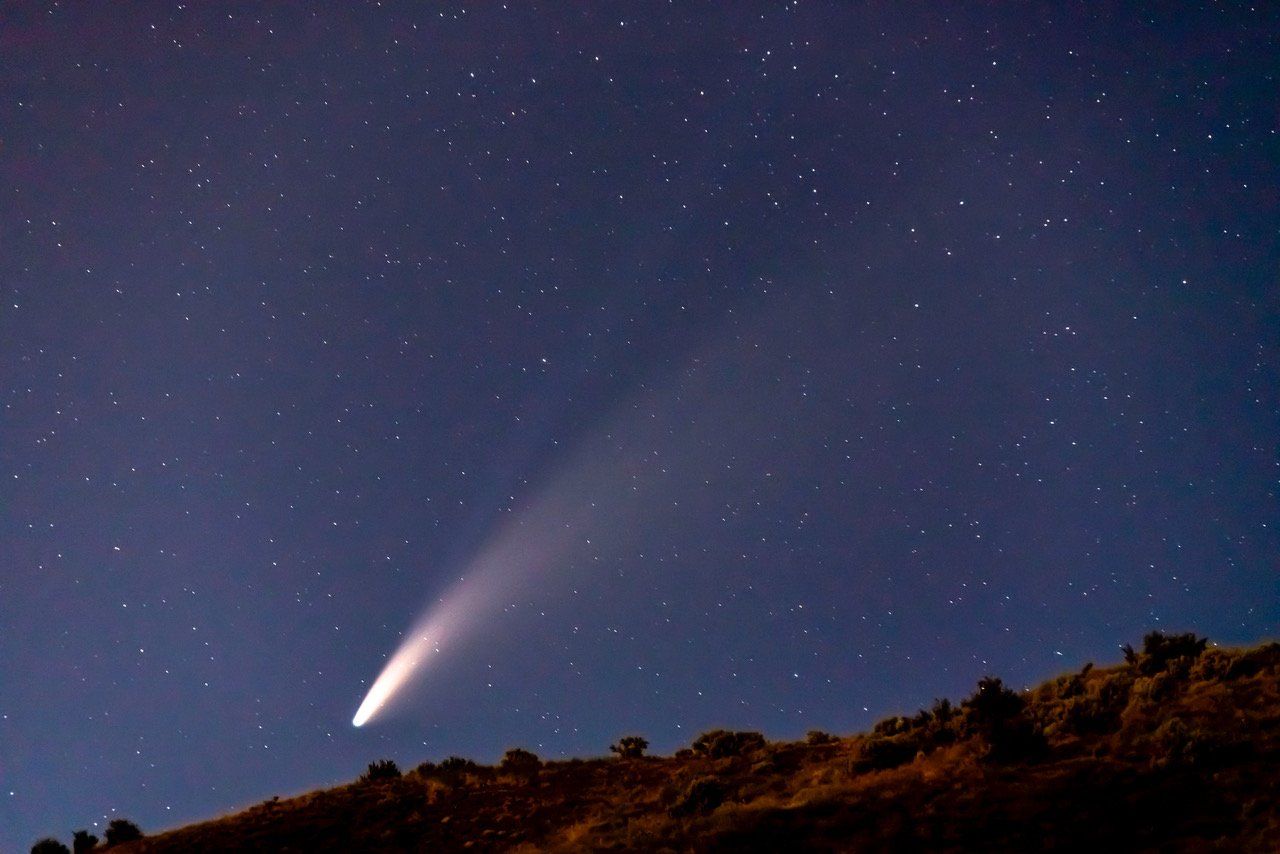Comet Neowise
"...our minds operate as filters that obscure our true nature, which is vast, infinite, and boundless."

Photo by Vincent J. Fortunato
Comet Neowise at 11:03pm MDT on July 15th, 2020 behind the Boise foothills. (8 sec at f/5.6, ISO 3200, 70-300mm zoom lens set at 165mm. Minor adjustments to exposure and to reduce noise were made using Adobe Lightroom Classic.)
For as long as I can remember, I have always felt an intuitive connection with the earth and sky. This feeling was never more pronounced than on those opportunities when I would be able to look up during a dark night sky at the stars and Milky Way. Laying on my back in the middle of a field looking up at the universe brought forward a sense of awe and profound connection. Many times, I would lose my sense of self and intuitively know that I was the universe looking back upon itself.
The irony is that what I had intuitively known and experienced as a child and young adult is, quite literally, true. I remember the question being asked, “Is the universe conscious?” And the answer has to be “yes!”
If you don’t believe me, think about this: what comprises our bodies (and all life forms, for that matter)? Atoms and molecules, yes? And where did these atoms and molecules come from? Well, from the earth, yes? And where did these earth-based particles, such as hydrogen and oxygen found in our air and water come from? The stars, right? As Carl Sagan had once pronounced, “We are star stuff.”
So, if you really think about it, we—all life forms, including human beings—are nothing more than little pieces of the planet Earth, which itself is comprised of the basic elements of the universe and of exploded stars. And human beings, in particular, have not only become mobile, but self-aware. But given that we are comprised of the particles, atoms, and molecules of the universe, then what we think of as our awareness, our consciousness is, quite literally, the consciousness—the awareness—of the universe.
It is only in our minds that we believe that we are separate from what it is that is observed; that we believe that there is a separate ‘me’, separate from the trees, water, and air, and other life forms that give us life, nourish us, and sustain us. Separate from the earth from which we evolved. Separate from the stars themselves, without which, the minerals and complex molecules that comprise our bodies would not exist. And separate from other life forms and human beings that are also just other mobile and aware pieces of the planet and universe.
More important, most of humanity has fallen into the habit of believing that we are our thoughts rather than the open spacious awareness from which those thoughts arise and fall away. As human beings, we have given dominance to our minds and thoughts: our little, ego-centric, self-centered, little minds. Our minds are like clouds that obscure the vast infinite sky above them. As such, our minds operate as filters that obscure our true nature, which is vast, infinite, and boundless.
But how many of us have asked the question: from what or where do those thoughts arise? And where do they go? And if thoughts can be observed, what exactly is doing the observing.
Rare astronomical events, such as the appearance of a comet or a solar eclipse, provide us with an opportunity to drop our superstitions and ideas and instead remember that what we are is this universe observing itself through our eyes, ears, and other senses. And in doing so, this universe, through these little mobile self-aware pieces of the planet, is able to feel profound awe and connection with a passing comet. How wonderful that this is even possible. How mysterious. How paradoxical. How profound.










